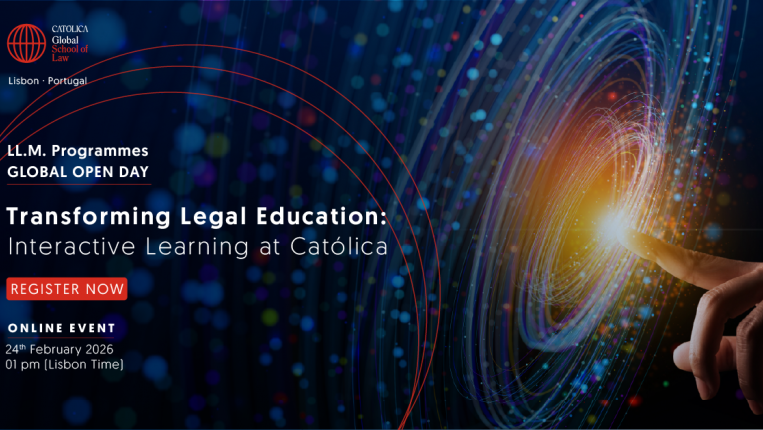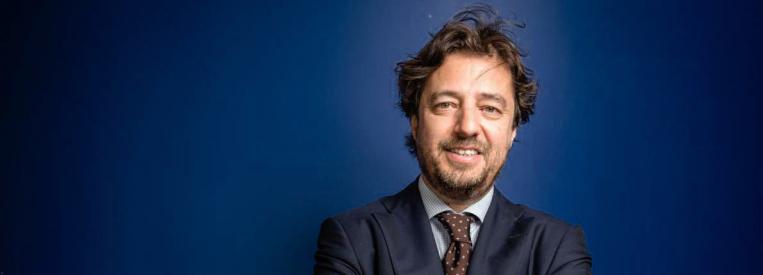A Legal Education fit for Law in Action
|
|
Law is changing. Legal rules increasingly originate from different sources: national, European and international legal sources; in some cases, also private sources. Lawyers increasingly need to operate in this context of a plurality of fora, jurisdictions and legal sources. Law is also changing as a consequence of technological developments. Artificial intelligence is impacting at the levels of law-making and dispute resolution. But it is also changing the practice of law and the issues regulated by law. The latter contributes to a broader process of expansion of the social functions of law. Law is, in many respects, growingly contested but, at the same time, it is also becoming a space for the resolution of social conflicts that other institutions (including the political process) are incapable or unwilling to deal with.
As a consequence of these transformations, the market for legal services is also changing. Top law firms have reacted to the Europeanisation and globalisation of law by becoming European and global themselves. All law firms, even middle-sized ones, stress the increasingly international or transnational character of their work. This also impacts on other legal professions, including the judiciary. At the same time, this will also increase the cross-fertilisation of legal concepts and miscegenation of legal cultures.
The focus of legal work has also gradually shifted from classic litigation to other forms of dispute resolution and preventive lawyering. This is reflected in the growth of other legal professions such as in-house lawyers. All these require new legal and non-legal tools, and a new skill set from lawyers. Soft skills, such as strategy or negotiation, and critical and creative thinking will be at a premium.
Is European legal education addressing these changes? And is it ready to cope with the challenges they bring to the teaching and learning of law?
One has reasons to be sceptical, not least because these questions in themselves are surprisingly understudied. The justification for this may be found in the ambiguity surrounding the character of legal education. On the one hand, legal scholars do not “authorise” other social scientists to research the study of law – the presumption being that legal education cannot be understood or questioned by non-lawyers. On the other hand, lawyers tend to focus exclusively on what the law itself is, considering issues of education as unworthy of the attention of legal scholars. In other words, while we treat legal education as a subject outside the province of legal science, we do not recognise anyone else’s right to address it. As a consequence, legal education is a “no man’s land”; it is a subject that is practised but not often reflected upon.
The ambiguity regarding the role of legal education reflects, in part, a larger ambiguity about the character of law as a science. Is law a technical trade or a science? Europe’s tradition of legal dogmatics has addressed this ambiguity by merging the two: law is the science of legal practice. Law becomes a science by organising and systematising the legal materials of a particular legal system. But, at the same time, this often leads to extreme formalism. US law schools have dealt with this ambiguity by often separating legal scholarship and legal teaching. There is a profound divide on how law is taught and thought of in the United States. The dominant conception of the law in legal scholarship is not really reflected in the way in which the law is usually taught. Both approaches are unsatisfying.
In this context, the current changes in the character of law offer us an opportunity to rethink the nature of legal scholarship and legal education and to do it so as to make legal education merge the gap between law in the books and law in action.
Only this will be representative of what law really is today and fit the needs of the legal profession. Studies on the sociology and history of the legal profession have highlighted that the precise role of the legal profession is historically contingent, and that that role also impacts on the style of lawyering. It is inevitable that the changes in the structure and character of the market for legal services will affect the recruitment policies for lawyers and the legal training expected of them. A survey by The European Lawyer notes that there is increasing competition in the recruitment process for top lawyers, with firms recruiting at a progressively early stage and looking for lawyers with international training, preferring people with diverse and international (or transnational) training. This is not exclusive of law firms: international masters degrees are now a usual requirement to access legal jobs at international organisations and, increasingly, for in-house positions at large companies.
Paradoxically, the need to adapt to changes in legal practice may require a stronger theoretical understanding of law in legal education. That is, the right theorisation of law; one that is not a mere abstraction from legal practice, but that genuinely engages with the institutions and processes that shape that practice beyond simply the textual legal materials. It is only by truly understanding the “mechanics” of law that students will be able to make sense of and adapt to the constant changes in the law and the different legal contexts and cultures in which they will be required to practise it. Even from a purely advocacy perspective, the move from systematising to understanding the law is much more effective for the purposes of constructing different possible legal narratives that can be successfully put forward before courts and other legally relevant actors.
The changes in the law must be reflected in changes in the teaching of the law: its curricula, with new courses and skills, but also its methods and pedagogical approaches. However, they must remain legal. Simply adding to the study of doctrinal law the study of other legally relevant social disciplines may do more harm than good if the right link is not established with the law. The focus should always be on law and the departure point must be the existing legal sources. That is the point beautifully conveyed by Joseph Weiler’s term of “Total Law”. Those other disciplines are relevant to the extent they illuminate legal issues, improve our advocacy skills and make us better lawyers. If they do, then they are part of the law. It is those that are not taking them into account that are leaving out of legal teaching certain aspects of the law.
It is this enormous challenge that we embrace at Católica Global School of Law. For that, we employ a stellar international faculty committed to this understanding of the law and legal education. That is not enough, however. In order to be successful, such teaching should take place in a truly European and international community of learning that is also committed to that goal. That is what we expect of students and that is why we believe you chose us.
There is much to be done at Católica Global School of Law, but we have the right foundations: a faculty and student body, diverse and of high quality, committed to a different way of teaching and learning the law.
Miguel Poiares Maduro
Dean | Católica Global School of Law




